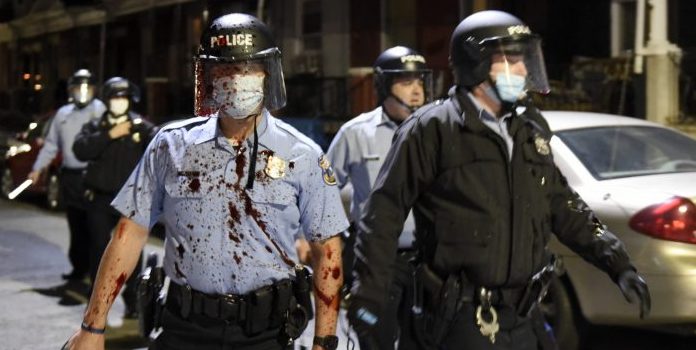(Headline USA) The Philadelphia Lodge of the Fraternal Order of Police has filed a lawsuit seeking to invalidate a city law banning officers from pulling over drivers for low-level offenses, saying the law illegally preempts existing state laws on traffic violations.
The lawsuit, filed in Common Pleas Court Wednesday by the Fraternal Order of Police Lodge 5 and several of the union’s leaders as individual citizens of Philadelphia, also argues that the First Class City Home Rule Act prevents Philadelphia from creating a law counter to those already in place throughout the rest of the state.
The lawsuit asks for declaratory judgment but does not ask for an injunction that would stop the law from going into effect March 3. City officials had initially said enforcement would begin Thursday.
The law will prohibit officers from pulling over vehicles solely for a handful of traffic offenses deemed “secondary violations,” such as improperly displayed registration or inspection stickers, and single broken taillights.
Philadelphia is the largest city government in the U.S. to pass a ban on what are sometimes called pretextual stops. Its Driving Equality Bill was passed by the City Council and later enacted through a mayoral executive order in November.
Critics say the practice has led to black and Latino motorists being unfairly stopped and searched at disproportionately high rates and sometimes being detained for small infractions.
The Defender Association of Philadelphia projected that the enforcement change could mean as many as 300,000 fewer police encounters a year.
The practice has also led to a handful of high-profile deaths: Sandra Bland in Texas, Walter Scott in South Carolina and Daunte Wright in Minnesota were all initially pulled over for pretextual stops.
A request for comment from the city was not immediately returned Wednesday.
The lawsuit alleges the law “creates a new class of offenses that law enforcement officers are prohibited from enforcing—impermissibly amending legislation enacted by the General Assembly.”
Advocates for law enforcement say such stops can uncover illegal drugs and weapons, noting that the U.S. Supreme Court ruled in 1996 that they were acceptable.
At least two prosecutor’s offices in Minnesota have said they will no longer prosecute motorists charged with other crimes resulting from pretextual stops.
Municipalities smaller than Philadelphia, the nation’s sixth-most populous city, have issued similar bans, and the state of Virginia banned stops solely for infractions like smelling marijuana, overly tinted windows or objects hanging from the rearview mirror.
In 2011, the city settled a policing discrimination lawsuit that alleged Philadelphia officers illegally targeted black residents for pedestrian searches.
Reform advocates have argued in recent years that because those pedestrian stops have been closely monitored, officers turned to pretextual traffic stops to conduct the same barred searches on black drivers instead.
Adapted from reporting by the Associated Press

